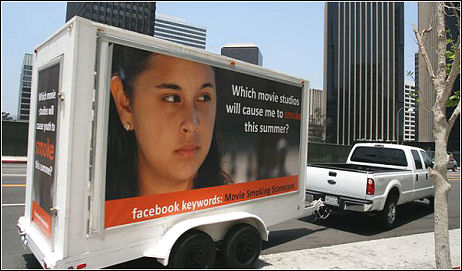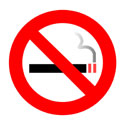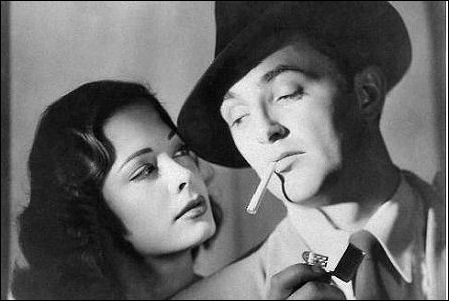Movieline’s Stu Van Airsdale, an admitted smoker with a slight-to-moderate guilt complex, bitched yesterday afternoon about a recently announced Facebook finger-wagging campaign supported by a “voluntary” arm of the American Medical Association. (As opposed to an involuntary arm?)

The idea, as reported yesterday by the N.Y. Times‘ Brooks Barnes, is to “publicly shame movie studios for depicting images of smoking in their mass- appeal movies” with a campaign that asks Facebook readers to send along scorecard reports about movies that feature cancer clouds. “Which Movie Studios Will Cause the Most Youth to Start Smoking This Summer?” is the slogan.
There’s also a low-rent Facebook video that explains it.
Smoking is “deadly as hell” Van Airsdale writes, but this new campaign “still boils down to is censorship, just like every other ratings hassle in Hollywood. And censorship always boils down to asking how much these freaks will deny kids any semblance of agency in their lives, all while absolving adults of any responsibility as parents. A Movie Smoking Scorecard? Are you serious? Who’s the real bad guy here?”
Two years ago I addressed the primary problem with smoking in movies, which is that it often reflects bad acting. It’s not smoking in movies per se that’s so bad, but actors who use constant smoking as a behavioral crutch.

I put it rather well in this April 2007 piece, which I don’t mind reposting:
“Smoking can look marginally cool depending on how skilled or preternaturally cool the actor is, but it becomes extremely tedious and off-putting when done to excess. Cigarette smoking used to be extremely cool but no longer, and that goes for actors in movies especially.
“The only people I know in real life who smoke are (a) young and courting a kind of contrarian identity, (b) older with vaguely self-destructive attitudes, and in some cases beset by addiction problems, (c) serious “party” people with unmistakable self-destructive compulsions and tendencies, and (d) life’s chronic losers — riffraff, low-lifes, bums, scuzzballs.
“The point is that all the above associations seem to kick in every time sometime lights up in a film, and it’s gotten so that I don’t want to watch characters in movies smoke at all. Unless it’s a period film or unless they look extremely cool doing it (a la Robert Mitchum in Out of the Past or Jean Paul Belmondo in Breathless), but very few actors have that ability.
“I smoked for years and years but I don’t any more, and I don’t like the way cigarettes smell unless I’m in Europe. (It’s different over there). Smoking isn’t exactly outright suicide but it’s the next thing to it, and every time someone lights up in a movie it half-pisses me off and makes me think negatively about the film in general, especially if this or that actor smokes all through the movie and looks and acts like a lowlife.

“Criminals in movies are always smoking because of (b), (c) and (d), but I think it’s way too easy for an actor to use smoking as a piece of business. It’s tedious and repellent. It makes me want to see the actor get shot or at least beaten up.
“I think the sun has really set on the sexiness of smoking in movies, and I’m starting to think that actors who light up all the time in front of the camera are second-raters.
“People should be free to do anything they want of a self-destructive nature — cigarettes, booze, compulsive eating, coke, heroin — as long as they don’t hurt anyone else doing it. And actors should be free to do anything they want that will make a performance connect. But smoking has lost its coolness, and actors who lean on it repeatedly or compulsively are boring, and I’m starting to say ‘the hell with them’ when they pull one out and strike a match.
“Deep down I guess I’m acknowledging that I wouldn’t be surprised if I live a slightly shorter life because of my smoking in the ’70s and ’80s, and I’m kind of angry about that possibility.”












